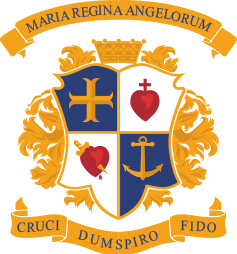English
Intent
Our curriculum is designed to be dynamic and to engage students with the issues of a 21st century world, through the topics we explore and the discussions that we have in lessons. Our aim is to ensure that every student is equipped with a great range of knowledge and skills that will be vital to their development as individuals. Our teachers foster harmonious relationships in the classroom, which allow each student to build confidence in their understanding of literature. We expect them to be able to read a full range of fiction and non-fiction texts critically and with confidence. In addition, we encourage the love of reading through our lessons and in our collaborative work with the library. Alongside the more functional aspects of reading, the curriculum also ensures that students develop the knowledge and skills necessary to have an appreciation of a range of texts from the literary canon in addition to those drawn from a range of different literary genres and forms. We encourage students to debate their ideas and to question interpretations, so that they form a critical approach to their analysis. Over the course of KS3, students will be introduced to the art of responding to literature in a formal essay through the study of prose fiction, Shakespeare and poetry from around the world. Our schemes of work are aspirational, showing a high level of challenge in the choices of text and in the ways that we encourage students to respond to them.
Our curriculum ensures that students will also possess the knowledge and skills necessary to write with technical accuracy. There is a clear emphasis on spelling, punctuation and grammar. Students will develop their skills in both creative writing and non-fiction writing, with a particular focus on mastering the key forms and styles of non-fiction writing prevalent in society from formal letter writing to the writing of speeches. Students also need to be able to speak articulately, adapting the register of their speech to context and audience, while ensuring that they develop the complementary skill of critical listening. Through their writing and the spoken word, students are encouraged to consider ideas of social justice and ethical challenges that are relevant to the modern world.
As we move to GCSE level, students follow the AQA curriculum in both English Language and Literature. This challenges them to build on the skills developed at KS3, but with a deeper focus on reflection and the exploration of meaning. At A Level, students follow the AQA English Literature B course. This requires a mastery of even more challenging texts, which they are expected to respond to in an increasingly analytical and evaluative manner. Further development in the use of vocabulary and structural techniques are also focused on, in order to support the progress of the students’ essay writing. They will leave us well-equipped for the academic challenges of university life.
English Curriculum Maps
-
Yr07 English Curriculum Map 2025-26
download_for_offline
download_for_offlineYr07 English Curriculum Map 2025-26
- Yr08 English Curriculum Map 2025-26 download_for_offline
download_for_offlineYr08 English Curriculum Map 2025-26
- Yr09 English Curriculum Map 2025-26 download_for_offline
download_for_offlineYr09 English Curriculum Map 2025-26
- Yr10 English Curriculum Map 2025-26 download_for_offline
download_for_offlineYr10 English Curriculum Map 2025-26
- Yr12 English Curriculum Map 2025-26 download_for_offline
download_for_offlineYr12 English Curriculum Map 2025-26
- Yr13 English Curriculum Map 2025-26 download_for_offline
download_for_offlineYr13 English Curriculum Map 2025-26
- Yr08 English Curriculum Map 2025-26 download_for_offline






